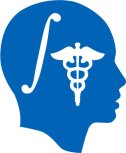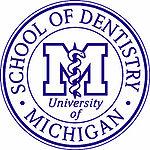Construction and Superimposition of 3D Surface Models IADR 2015

|

|

|

|
Contents
Editing Construction and Superimposition of 3D Surface Models IADR 2015
Introduction
This workshop will highlight new developments in publicly available software for image analysis and imaging based research for Dental applications. 3D image analysis continue to mandate a multidisciplinary collaborative team including clinician researchers, software engineers and computer science experts. This hands-on workshop for Cranio Maxillo Facial applications will be held prior to the Joint Cephalometric Experts Group at the Bolton Brush Growth Study Center, Cleveland, OH. This work was supported by the National Institute Of Dental & Craniofacial Research of the National Institutes of Health under Award Number R01DE024450. The content is solely the responsibility of the authors and does not necessarily represent the official views of the National Institutes of Health
Date and Location
Wednesday March 11th , 3:15 p.m. - 4:45 p.m, at the .
Workshop Content
The different presentations started with a presentation and a demonstration of the use of the tool The workshop combines oral presentations and instructor-led hands-on sessions with the participants working on their own laptop computers.
Presenters
Preparation for the workshop
The workshop combines oral presentations and instructor-led hands-on sessions with the participants working on their own laptop computers. All participants are required to come with their own laptop computer and install the software and datasets prior to the event. A minimum of 1 GB of RAM (4 GB is better) and a graphic accelerator with 64mb (512MB is better) of on-board graphic memory is required. Shared memory graphics boards have significantly poorer performance.